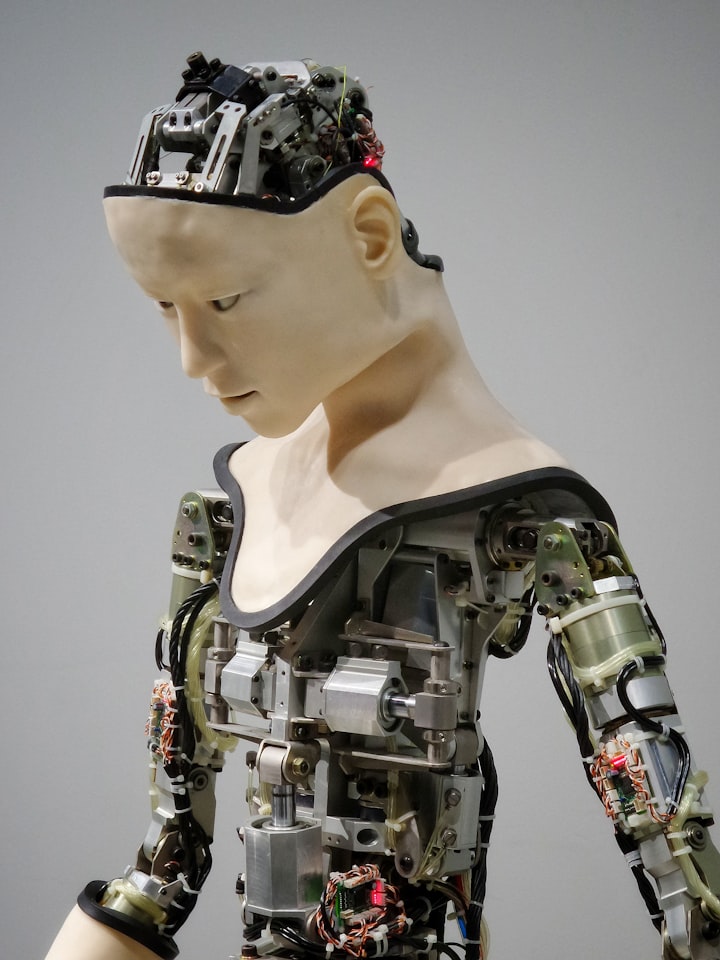
The Revolutionary Impact of Robots: Transforming the World In recent years, robots have emerged as a transformative force, reshaping various aspects of our society and altering the very fabric of human existence. With their ability to perform complex tasks, improve efficiency, and enhance productivity, robots have rapidly integrated into industries, homes, healthcare, and beyond. This essay delves into the ways in which robots are changing the world, revolutionizing sectors and creating a profound impact on our daily lives.
Industrial Revolution (150 words) Robosapians
Robots have revolutionized the industrial landscape, leading to what many call the "Fourth Industrial Revolution" or "Industry 4.0." These intelligent machines have significantly enhanced manufacturing processes, streamlining production, and improving efficiency. Robots excel in performing repetitive tasks with precision and speed, eliminating human error and fatigue. They have the ability to work non-stop, resulting in increased productivity and reduced costs. As a result, industries have witnessed higher outputs, shorter production cycles, and improved quality control.
Automation and Job Market (150 words):
The integration of robots into various industries has transformed the job market. While concerns over job displacement exist, automation has also led to the creation of new types of jobs and shifted the workforce towards more skilled roles. Routine, manual labor has been largely automated, allowing humans to focus on creative and complex tasks. The collaboration between humans and robots has become increasingly prevalent, with humans overseeing and complementing the capabilities of robots. Moreover, as industries grow due to increased productivity and efficiency, new job opportunities arise in research, development, maintenance, and programming of robots.
Healthcare Advancements (150 words):
Robots have made significant contributions to the healthcare sector, enhancing patient care and improving outcomes. Surgical robots, for instance, offer greater precision, reduced invasiveness, and enhanced dexterity, leading to improved surgical procedures and faster recovery times. Telemedicine robots enable remote consultations, bringing medical expertise to remote areas and increasing access to healthcare. In addition, robots can assist with repetitive tasks such as medication dispensing, patient monitoring, and rehabilitation exercises. They provide support to healthcare professionals, allowing them to focus on critical decision-making and patient interaction. As the demand for healthcare services continues to grow, robots will play a pivotal role in meeting these needs.
Environmental Impact (150 words):
Robots are instrumental in addressing environmental challenges and promoting sustainability. In agriculture, autonomous robots optimize crop management by precisely applying fertilizers and pesticides, reducing waste and environmental impact. They can also perform labor-intensive tasks like planting and harvesting, increasing agricultural efficiency. Additionally, robots are deployed in hazardous environments, such as nuclear power plants and oil rigs, where human presence may be risky. By taking on these tasks, robots help mitigate the risk to human lives and minimize the impact of accidents or disasters. Moreover, autonomous robots are used in waste management, sorting recyclables and reducing landfill waste. The environmental benefits of robotic technologies are invaluable in the quest for a greener and more sustainable future.
Conclusion (100 words):
Robots have become agents of change, transforming industries, revolutionizing healthcare, and addressing environmental challenges. While concerns regarding job displacement exist, the rise of robots has also created new opportunities and shifted the focus toward more skilled roles. The integration of robots into various sectors has resulted in increased productivity, improved efficiency, and enhanced safety. As technology continues to advance, it is essential to embrace the transformative power of robots while ensuring ethical considerations and responsible deployment. By leveraging the capabilities of robots, we can create a world where humans and machines work together to achieve unprecedented progress and a better quality of life for all.





Comments
There are no comments for this story
Be the first to respond and start the conversation.